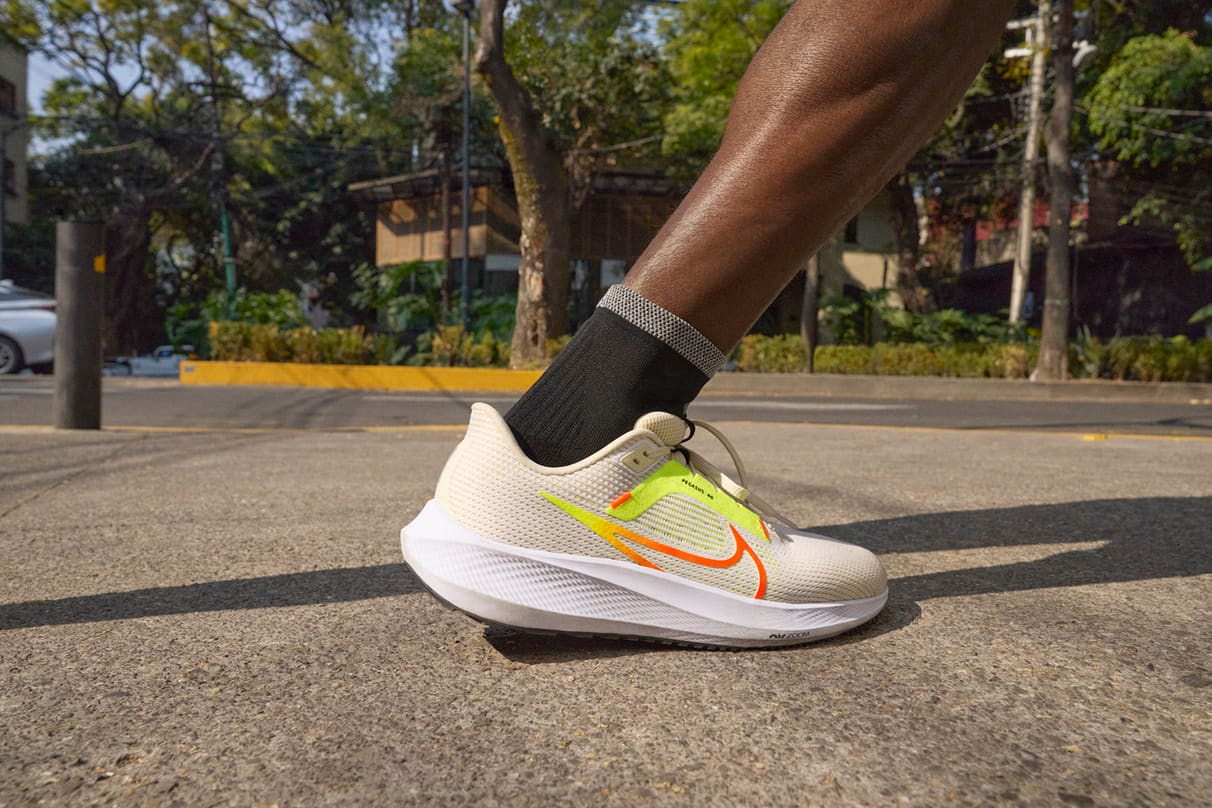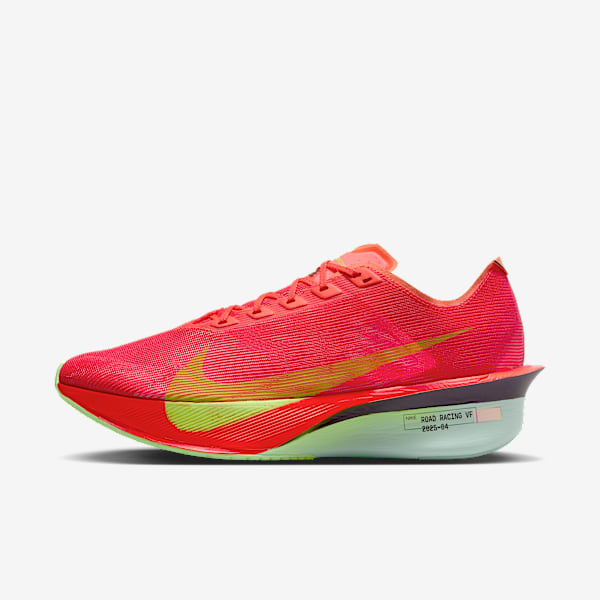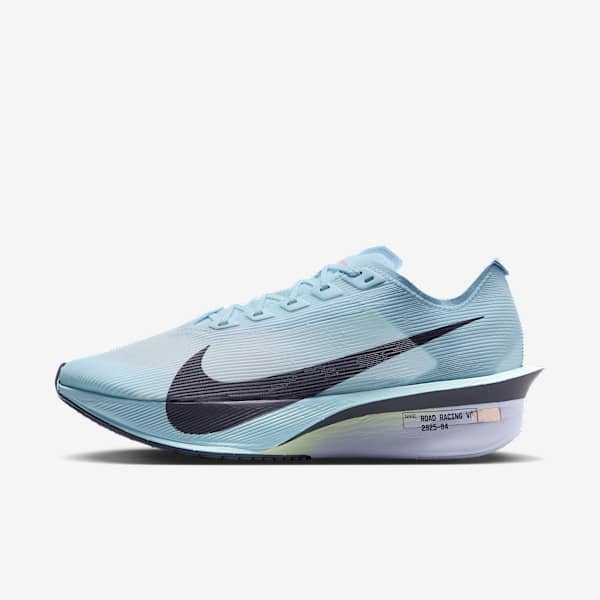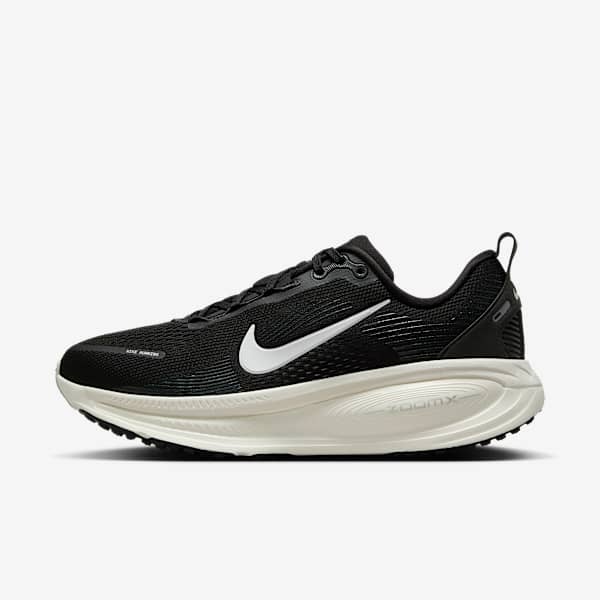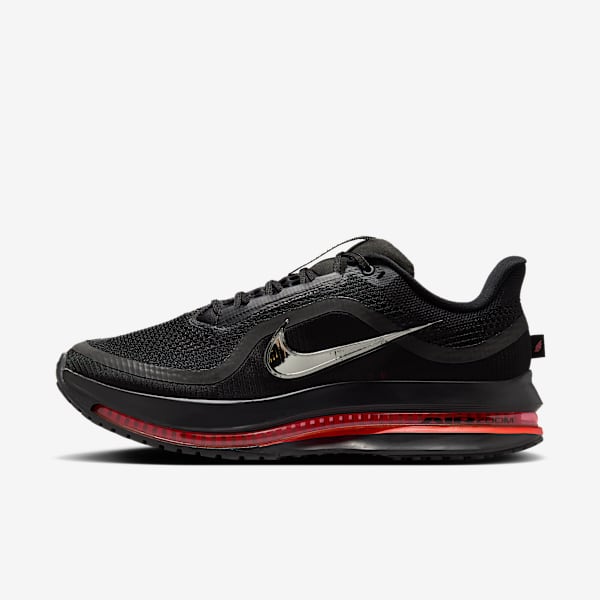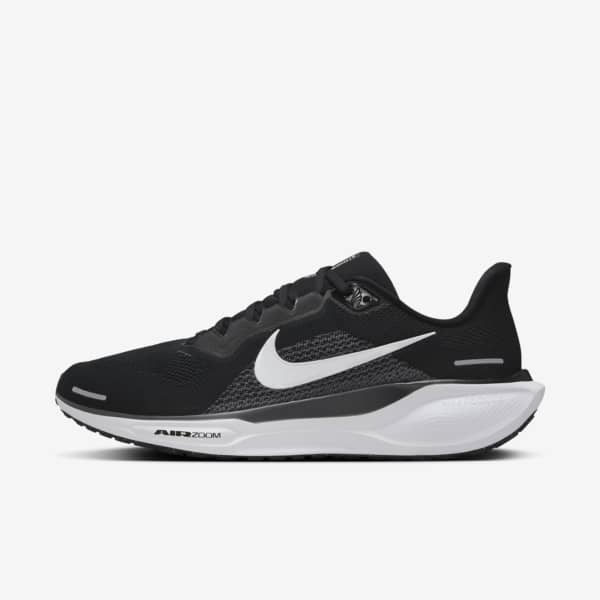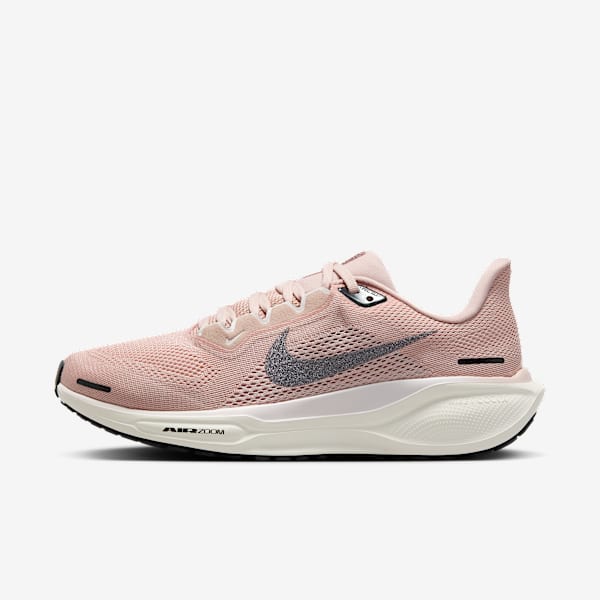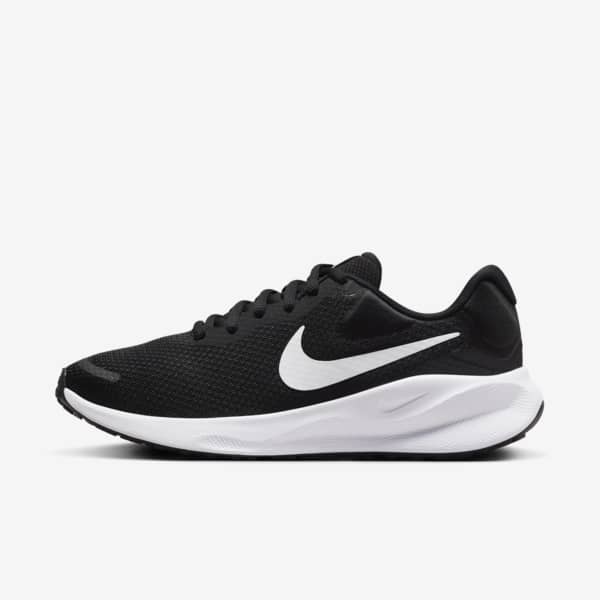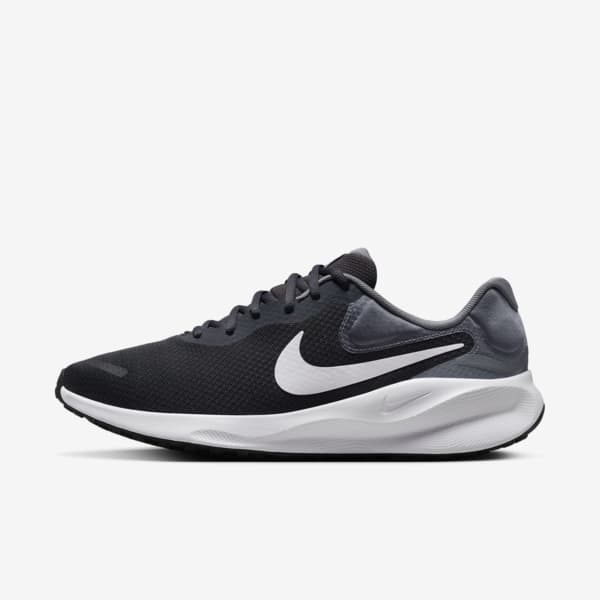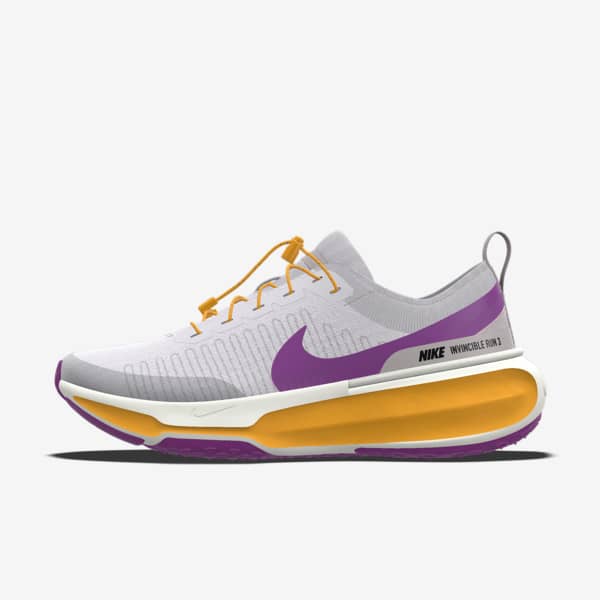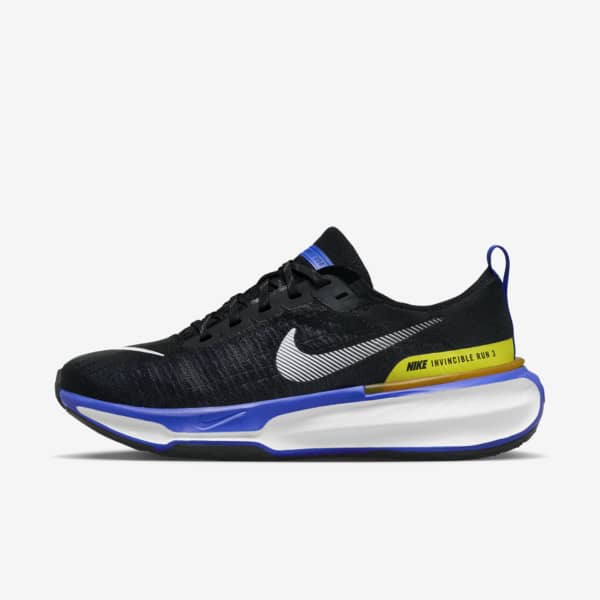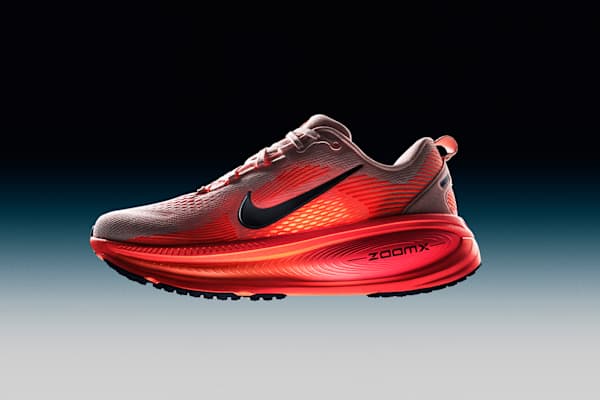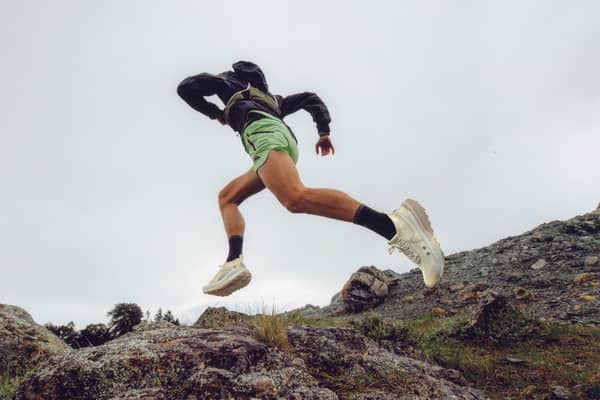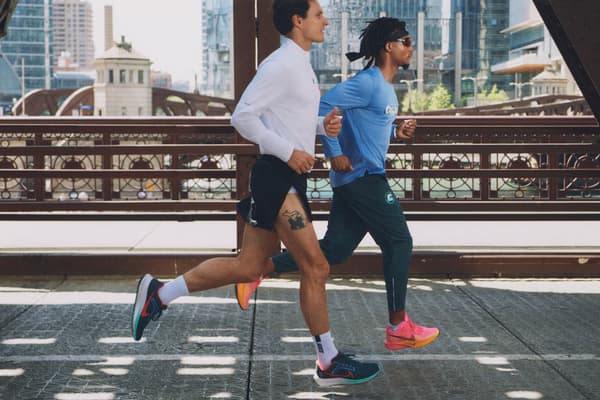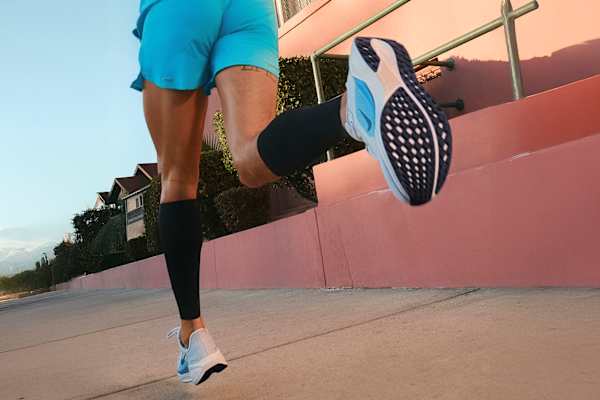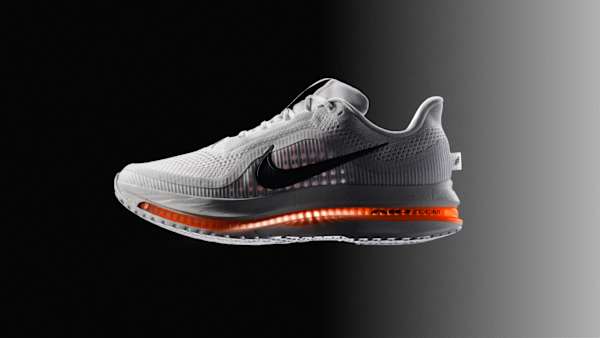The best shoes for running a marathon, by Nike
Buying guide
Winning picks for speed and support

When running a marathon, you need shoes to help you go the distance. Racing shoes should do the seemingly impossible: provide cushioning and support while remaining as lightweight as possible. If you're gearing up for an endurance run, consider picking up a pair of racing or running shoes—or both. Here's why, along with some tips and suggestions for finding the right footwear to give you a leg up on the competition (pun intended).
What are racing shoes?
Racing shoes, also known as "super shoes", are all about increasing speed. Lightweight, they tend to feature the most advanced technology, like carbon fibre flyplates (for a propulsive feel) and foam technology (for cushioning and responsiveness). While cushioning helps to boost comfort and absorb impact, responsiveness leads to springier, bouncier steps. "Racing shoes have lots of cushioning and [can help] make the miles feel easier", says Elliott Heath, Expert Product Line Manager for Global Footwear at Nike.
Do I need racing shoes for a marathon?
Although many pros rely on them, racing shoes are not a requirement for marathons, Heath explains. If they're out of your budget or you need more support and stability, try running shoes instead. Performance or super running shoes offer many features of racing shoes, usually with more cushioning.
Or pick up a pair of each. Wear racing shoes on race day and some training days, and running shoes on other training days. Your feet and shoes will probably thank you: research has suggested that alternating shoes can help runners reduce the chance of injury, not to mention sneaker wear and tear. Plus, since running shoes tend to offer more cushioning and stability than racing shoes, they can be a boon for your joints and enhance recovery.
What qualities should I look for in running shoes for marathons?
"A marathon is a long way", Heath says. In general, the best shoe for these endurance runs should provide ample cushioning and protection and help propel you forwards, he explains. In short, reactive cushioning and carbon fibre flyplates can promote faster and easier running, while ample foam softens impact and enhances comfort. Whether you're a novice or a veteran runner, the bottom line is to choose shoes that are most ergonomic for you.
Which shoes are ideal for marathons?
Consider these racing and running shoes, suggests Heath. If you're concerned about injuries or unsure which features to prioritise, think about consulting a sport podiatrist.
Racing shoes
Rigorously tested in the Nike Sport Research Lab, the Nike Alphafly 3 is the company's most cushioned and responsive shoe, Heath says. Two Air Zoom units in the forefront contain spring-like threads that contract and pop up, enhancing bounce and speed. Together with a heel-to-toe ZoomX foam midsole, these features provide cushioning, and store and return energy to runners. Meanwhile, a full-length carbon-fibre plate assists with stability and gives a propulsive feel.
Similarly high in cushioning and responsiveness, the Nike Vaporfly 3 also features a full-length carbon-fibre flyplate plus heel-to-toe ZoomX foam. The lightweight shoe includes an outsole with a perforated waffle pattern to assist with traction. "The Vaporfly is a great racing shoe that can go the distance of a marathon and has the versatility to run shorter distances as well", Heath says.
Running shoes
The Nike Zoom Fly 5 features a ZoomX foam midsole, carbon-fibre plate, and roomy forefoot and heel for more stability. "The Zoom Fly is a great marathon shoe for a runner looking for a little more durability and a more accessible entry into the experience of marathon race shoes", Heath says.
The versatile Nike Pegasus is comfortable and responsive. The 40 features two Zoom Air units plus Nike React technology (a lightweight, durable foam). The outsole bears a waffle-inspired pattern to help with traction.
The Nike Structure offers support and comfort. To help runners' feet roll through the midsole smoothly, high stacks of foam curve upwards at the toe, Heath explains. Along with this rocker-shaped foam, a Zoom Air unit in the forefoot assists with energy return.
Words by Dina Cheney
